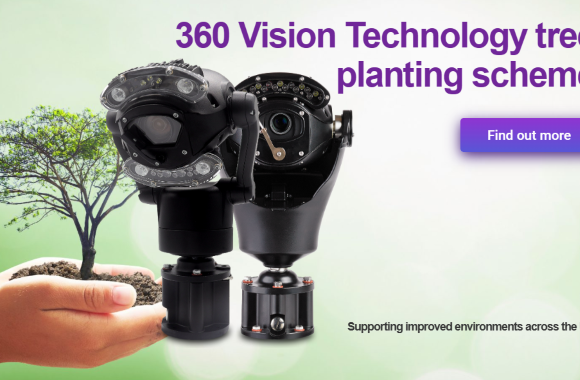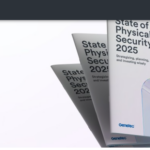ScreenCheck: How AI-driven Identity Management and Access Control is Shaping Smart Cities in MENA

Smart cities are built on secure access, trusted identities, and resilient infrastructure — and that is exactly where ScreenCheck makes a difference. With over two decades of experience in the region, we’ve developed a deep understanding of the diverse and evolving security needs across various sectors, including government, healthcare, education, and critical infrastructure.
As cities across the Middle East continue to reimagine urban living through large-scale digital transformation, one foundational element is emerging as a quiet but critical enabler: secure identity infrastructure. From mobile citizen services to autonomous transport hubs, the systems that verify who we are — and control where and when we move — are becoming as vital as the networks that connect us.
This shift is happening in parallel with a surge in investments across AI, IoT, and cloud ecosystems. In the Gulf Cooperation Council (GCC), digital identity and access management (IAM) is now seen not just as a security layer, but as a strategic enabler of national visions — from UAE Vision 2031 to Saudi Arabia’s Vision 2030 and Qatar National Vision 2030.
AI Meets Access: Building the Foundations of Smart Urbanism
At the intersection of infrastructure, identity, and innovation, a new class of intelligent IAM systems is taking shape — biometric-enabled, mobile-first, AI-enhanced, and cloud-native. These systems don’t just lock doors; they shape the experience of movement, access, and security across cityscapes.
One company at the forefront of this evolution is ScreenCheck, a regional player with over two decades of experience in security technologies. While the company has long supported the public and private sectors with access control systems, its recent focus on AI-driven identity solutions reflects a broader industry pivot — from transactional access to intelligent, integrated ecosystems.
“As cities become smarter, access must become more predictive, seamless, and adaptive. AI is playing a key role in that transition — helping us not only recognize identities but anticipate behaviors, detect anomalies, and ensure security at scale,” says a senior consultant close to the sector.
Supporting National Visions Through Intelligent Security Infrastructure
The smart city vision in the GCC is deeply tied to automation, sustainability, and citizen-centric design. But as governments and developers move from legacy infrastructure to hyperconnected environments, the security architecture must evolve in tandem.
ScreenCheck’s approach illustrates this shift. The company now deploys platforms that unify access control, identity authentication, RFID tracking, AI-based surveillance, and cloud management — all into single, scalable systems. These solutions span government offices, transport terminals, healthcare networks, education campuses, Entertainment facilities, Residential projects, Retail centres, corporate environments, and high-security industrial zones, tailored to each sector’s compliance and operational needs.
From Smart Access to Data Center Protection
Several notable implementations across the region demonstrate how access control is being redefined:
- Mobile-First Access for Smart Islands
In a large-scale smart infrastructure project in Qatar, a fully digital access system was rolled out across a residential and commercial island development. The initiative aimed to eliminate traditional plastic cards in favour of secure mobile credentials, enhancing convenience while also supporting sustainability goals. ScreenCheck, in partnership with the leading system integrator, deployed over 850 mobile-enabled Suprema readers, integrated with visitor management, ANPR, and biometric time and attendance systems.
More than two years into its operation, the mobile-first model has proven reliable, scalable, and environmentally conscious.
- Securing the Entertainment Infrastructures
At one of the world’s largest upcoming amusement parks in Saudi Arabia, smart security is emerging as a foundational pillar, extending well beyond traditional access points. As the Kingdom accelerates investment in large-scale entertainment and leisure projects in line with Saudi Vision 2030, protecting critical IT infrastructure has become a strategic priority.
In this high-profile development, ScreenCheck is playing a key role in securing the core digital infrastructure that supports park operations. In an environment driven by data, automation, and immersive technologies, robust and integrated security systems are crucial for ensuring seamless connectivity, visitor safety, and long-term operational resilience.
- BYOD-Based Attendance Management for Distributed Workforce
For one of the largest facility management systems in the UAE, ScreenCheck implemented a BYOD (Bring Your Own Device) based attendance management solution. With employees deployed across multiple locations, traditional systems proved ineffective. The solution leveraged employees’ smartphones for clocking in and out, with integrated GPS tracking to log attendance based on the actual location of the facility. This approach delivered greater flexibility, accuracy, and transparency while ensuring alignment with HR and compliance protocols. - 4. Real-Time Tracking in High-Security Environments
In a deployment at one of the largest data centers in the Middle East, a Real-Time Location System (RTLS) was implemented to track personnel movement in sensitive zones, enabling faster emergency response, enhanced audit trails, and improved occupancy analytics.
Data Centers: The New Security Frontier
As smart cities generate exponential volumes of data, data centers have become their digital backbone, and their physical security is now as critical as cyber defense. A recent Research and Markets report projects the Middle East data center market will grow to nearly USD 7.94 billion by 2028, with rising emphasis on physical access, environmental monitoring, and uptime assurance.
ScreenCheck, together with integrators, is building layered security architectures that protect data flow from the edge to the core.
The Road Ahead: From Access Control to Active Enablement
The role of identity management is changing — from static authentication to dynamic enablement. Smart cities are no longer just about connecting infrastructure, but about orchestrating trusted interactions between people, devices, and systems.
AI is now central to this transformation. From predictive threat detection to automated compliance monitoring, identity platforms are becoming intelligent agents — not just guards, but guides — within the urban experience.
And as governments in the region push forward with bold smart city ambitions, companies like ScreenCheck are helping turn vision into reality — securing not just doors and networks, but the very foundations of tomorrow’s digital cities.




















